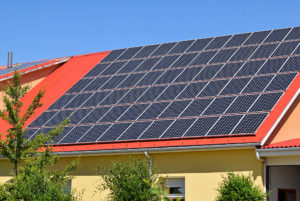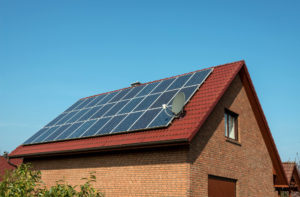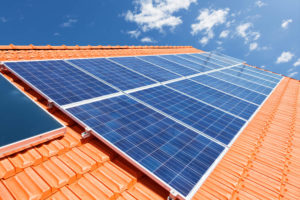There’s no denying that the reasons for you to opt for solar power are plenty! It can be due to it being a cleaner and unbound renewable energy source. Additionally, you may also want to reduce your dependency on traditional electricity grids. Another reason could be to make your home more energy-efficient.
Whatever the reason, installing solar power comes with tons of benefits. On top of that, the chance to save money on your electricity bills is a lucrative option no one will want to miss.
Contents
- 1 Key Takeaways
- 2 Why Choose to Install Solar Panels by Yourself?
- 3 The Pros and Cons of a DIY Solar Installation Project
- 4 DIY Project: How to Install Solar Panels by Yourself
- 5 Case Study: DIY Solar Panel Installation
- 6 Expert Insights From Our Solar Panel Installers About DIY Solar Panels
- 7 Experience Solar Excellence with Us!
- 8 Wrapping Up
Key Takeaways
- Installing solar panels yourself can save you a significant amount of money upfront compared to hiring professionals.
- DIY solar installations offer more flexibility in panel placement, allowing you to choose locations beyond your rooftop.
- However, DIY solar projects require significant time, effort, and expertise, and they come with risks such as potential damage, safety concerns, and a lack of warranty and incentives. Professional installations are often chosen for convenience and longevity.
Why Choose to Install Solar Panels by Yourself?
Now, when it comes to installing a solar panel system, most people may trust a professional company. It may eventually cut down the cost and show you big savings, but there would be a high upfront cost for it. So, the question remains, can you DIY (do-it-yourself) install the solar power panels?
Doing a DIY solar panels installation is a lot cheaper option since you are not relying on anyone else to do the work. However, there are certain pros and cons of this.
So, it is better to know about all the aspects of a DIY solar panels installation before taking the plunge.
The Pros and Cons of a DIY Solar Installation Project
It may seem like DIY solar projects are bound to be cheaper than hiring professional solar companies. However, there is a big issue of cost and commitment. Before deciding to DIY the solar panel installation, you should look at the few pros and cons.
This will help you understand if taking up the project will be worth your time and effort.
Pros of DIY Solar System type
Cost Saving
Now, the apparent reason for choosing to DIY your solar panel system installation is cost-saving. Everyone desires to be able to save a lot of money in the initial upfront cost. There is literally a gap of thousands of dollars between installing solar panels by a professional and using the solar panel kits yourself.
If you try working with solar panel kits, you will not need to hire any contractor for any task. This will definitely take the total cost of the project down a lot. Now, there could be many variables involved, such as the system size and whether you qualify for a solar tax credit.

Mental satisfaction
When you take up a DIY project, it is evident that you prefer challenging tasks. Being able to pull off something as big as solar panel kits can definitely boost your confidence. To do this efficiently, you will have to possess many different skills. This includes everything from financial planning, ability to operate power tools, knowledge of electrical work, and even tax accounting.
You will also have to know how to negotiate the municipal process. Moreover, pulling off all the researching, planning, permitting, wiring, monitoring, and installation all by yourself is no small feat. This will definitely give you a sense of accomplishment once you are done.
More flexibility of use
Doing the installations yourself gives you the ability to put the solar panel anywhere you like. You are not limited by the option of just keeping it on your rooftop. Whether you desire a solar-powered toilet or want to power up the old barn or tool shed, you can do it with ease.
When installing the panels yourself, you have more freedom to choose the locations. You can even install it on your RV roof or boat. The options are limitless!
Cons of DIY Solar Panel Installation
Takes up a lot of time and effort
Now let’s talk about all the cons of performing with DIY solar panel kits. Installing the DIY solar panel kits can take up a lot of time and effort, especially when done single-handedly without any prior professional expertise or experience. This makes it more difficult if you are not someone who enjoys this type of challenging task.
Moreover, you need to possess certain experience of handiwork, which requires some higher skills than assembling some furniture. If you do not possess any such skills or experience, you should refrain from taking the DIY route and installing the solar systems all by yourself.
Risk of damage or leaks
Now let’s talk about the financial risk of a DIY solar installation, which is perhaps the biggest risk of all. If you do not have a flat roof, then there needs to be a lot of drilling to install the solar systems onto your roof. If you accidentally end up drilling on the wrong areas, it could potentially damage your construction for good.
On top of that, incorrect sealing, flashing, and any such activities can damage and cause roof leakage, mold issues, and more. Also, it will possibly damage your roof’s warranty as well. So, when there is a need for any type of repair, you will have to pay the entire amount.

Physical danger
Let’s not forget that installing a solar panel on the roof involves heights and high-voltage electricity. In fact, other than the financial risks involved, these two are the biggest dangers you need to be concerned about. The physical risks are not just limited to the installation task, though.
Solar panels usually come with a warranty of decades due to their long lifespan. So, every time there is a problem on the panel, you will personally have to get back on the roof to check and fix it. What’s worse is that if the connection is not wired correctly, your roof might catch fire.
No claims to warranty
Of course, you will not get any warranty for a DIY solar project. If any damage happens, it will be entirely your responsibility. You can always get in touch with the manufacturers straight away. However, that may not be a viable solution for claiming the warranty.
On top of that, an improper installation could further damage and make the warranty null and void.
No claim to incentives
When you work with professional installers, instead of a DIY solar panel kit, you become eligible for incentives and rebates in many states. However, when you DIY the solar system, you are unable to claim any incentives on it.
When you get the installation done by a certified solar company, there are guaranteed incentives for the installation. So, make sure about the policies and rebates in your residential area before deciding to DIY.
Poorer quality PV panels
Buying solar panel systems on your local Costco store or online from Amazon will not always get you the best choices. The reason is that the consumer brands aren’t always as efficient or robust as a professional solar panel installation.
Since companies buy in bulk, they also are able to offer better discounts on a quality product. So, if you want to get the best deal on a solar panel that will last for decades, then DIY may not be the best solution.
DIY Project: How to Install Solar Panels by Yourself
If you have decided to go ahead with your DIY solar kit, then you need to know a few things. It requires a few step-by-step processes to complete the project efficiently.
Designing the system based on your energy needs
It would be best to decide your goals first when DIY installing your solar panel. As surprising as it may sound, this is actually the trickiest part of the entire process. This includes figuring out the whole process based on your energy needs. That means you need to consider the backup power, the complexity of the installation, and the cost of the project beforehand.

Buying the right solar system equipment
Next comes the solar equipment, of course. Making the right solar system purchase is an integral part of the process. Now, the standard features of any system type are the panels, wiring, mount, and solar inverter. The system that you choose should match your goals, solar panels cost, and complexity.
There can be three types of solar panel systems:
- Grid-tied: This grid-tied system uses the grid as a battery via net metering, and the upfront cost is less.
- Off-grid systems: As the name suggests, off-grid systems are entirely off-grid and need a larger battery. The only problem is off-grid solar panels are more costly.
- Hybrid: This is a mix of both off-grid and grid-tied, and uses a battery and a grid connection to support power failure.
Connectivity with the electrical board
It is time to connect the panels to the electricity and fire it up. Check the system through your solar monitoring app. This is available for almost every investor. You can estimate the overall performance of the panels through these. This way, you can determine whether the panels are successfully installed and functional.
Informing the local utility and requesting permission
After you have completed the project, it is essential to inform your local utility and seek permission to put the panels to use. This is essential to ensure your system meets all the state and local utility requirements.
Case Study: DIY Solar Panel Installation
Background
At Solar Panels Network USA, we frequently encounter homeowners eager to reduce their energy bills and environmental footprint through solar power. One such individual, Emily, approached us with the desire to install her own solar panel system. Emily had some basic DIY skills and wanted to take advantage of the cost savings and personal satisfaction associated with a DIY solar installation.
Project Overview
Emily’s primary objective was to transition her home to solar energy, thereby reducing her dependence on the grid and lowering her electricity expenses. She sought our guidance on selecting the right components, understanding the installation process, and ensuring her system was safe and effective.
Implementation
System Design and Equipment Selection
We started by helping Emily design a solar system tailored to her energy consumption. After analyzing her electricity bills, we calculated the number of solar panels needed and recommended a grid-tied system with battery backup for additional reliability.
Emily selected monocrystalline panels for their high efficiency and longevity. We assisted her in choosing a compatible inverter, mounting hardware, and other essential components. To ensure a seamless installation, we provided her with a comprehensive list of tools and materials required for the project.
Installation Process
Emily began the installation by preparing her roof and ensuring it could support the solar panels. She carefully installed the mounting racks, aligning them for optimal sunlight exposure. Throughout the process, we provided remote guidance, answering her questions and offering tips to streamline the installation.
Once the mounting racks were in place, Emily secured the solar panels and connected them to the inverter. She followed our detailed wiring diagrams and safety guidelines, ensuring all connections were properly insulated and grounded.
Connecting to the Grid
The final step involved connecting the system to the grid. Emily coordinated with her local utility company to obtain the necessary permits and inspections. With our support, she completed the paperwork and ensured her system met all regulatory requirements.
Results
Emily’s DIY solar installation was a success. The system performed optimally, providing a significant portion of her home’s electricity needs. She immediately noticed a reduction in her energy bills and appreciated the reliability of the battery backup during occasional power outages.
The experience not only saved Emily money on installation costs but also gave her a sense of accomplishment. She gained valuable knowledge about solar energy and felt empowered by her ability to contribute to a sustainable future.
Summary
Our collaboration with Emily on her DIY solar panel installation demonstrated the feasibility and benefits of such projects. With the right guidance and resources, homeowners can successfully install their own solar systems, enjoying cost savings and the satisfaction of self-reliance. At Solar Panels Network USA, we are committed to supporting individuals like Emily in their journey towards sustainable living, providing expertise and assistance every step of the way.
Expert Insights From Our Solar Panel Installers About DIY Solar Panels
Installing solar panels yourself can be a cost-effective way to reduce your energy bills, but it’s important to have a solid understanding of electrical systems and roof construction to avoid potential issues.
Senior Solar Technician
DIY solar installations offer flexibility in panel placement, allowing you to install panels on structures like sheds or even RVs, which can be a significant advantage for those looking for versatility.
Renewable Energy Consultant
While DIY solar projects can save money upfront, they require careful planning and a significant time commitment. Ensuring proper installation and adherence to safety standards is crucial to avoid any long-term issues.
Solar Energy Specialist
Experience Solar Excellence with Us!
Trust in Solar Panels Network USA, where our seasoned experts deliver top-quality solar solutions for homes and businesses nationwide. With a legacy of countless successful installations and a commitment to sustainable energy, we’re your reliable partner in the solar journey. Ready for a brighter, eco-friendly future? Call us now at (855) 427-0058 and harness the power of the sun!
Wrapping Up
Solar panels are highly useful for any space. Whether it’s a DIY project or store-brought, the panels can be put to many uses. They reduce your monthly electric bill and your carbon emission. Overall, it is definitely an eco-friendly alternative in the long run.
However, when the choice is between DIY and professional, the buyers lean more towards professional solutions. The primary reason behind this is convenience and longevity. DIY is suitable for hobbyists and those who have the time to pull off the project. In short, the solar panel DIY project can be a rewarding undertaking if you can execute every step with perfection.
About the Author
Solar Panels Network USA stands at the forefront of solar energy solutions, driven by a team of seasoned solar engineers and energy consultants. With over decades of experience in delivering high-quality solar installations and maintenance, we are committed to promoting sustainable energy through customer-centric, tailored solutions. Our articles reflect this commitment, crafted collaboratively by experts to provide accurate, up-to-date insights into solar technology, ensuring our readers are well-informed and empowered in their solar energy decisions.

